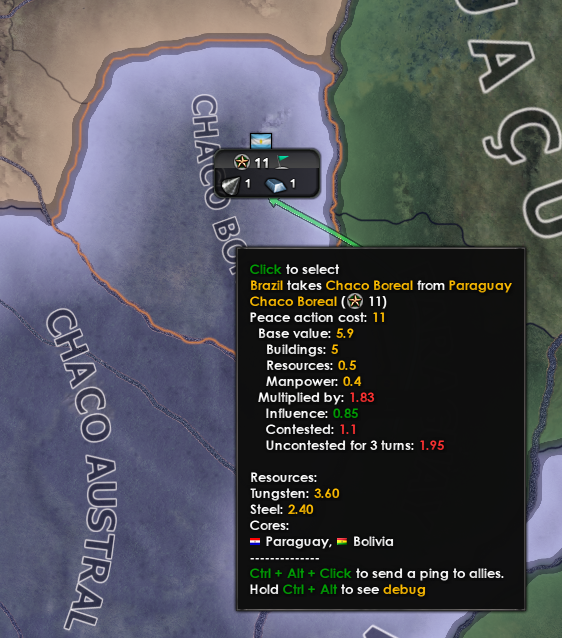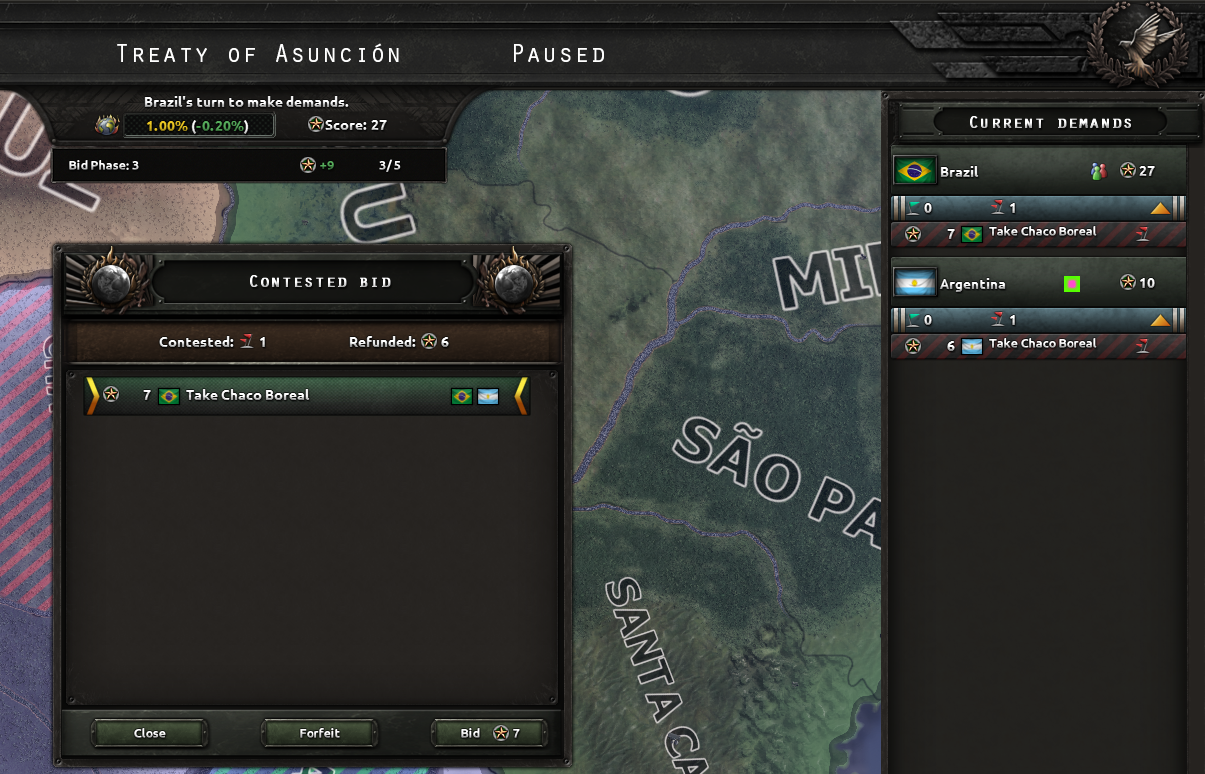
And we shall have peace... Hi folks,
It’s been a while since our last update on future plans for HoI, but we’re about ready to show you some of the work we’ve been doing. Before we begin, I’d like to indicate that there’ll be some differences in how we do this. As I’ve previously stated, we want to begin discussion around features and implementation details a little earlier in the process than usual. This means a couple of things.
Firstly, while we’ll be showing off some individual features, we’re not yet ready to give an overview of the entire scope of our next release yet. This will, of course, be coming in the near (ish) future.
Secondly, you’ll be getting an early look at what we’ve been working on, and this comes with all the caveats you might expect: lots of WIP design, interface, and gameplay.
Lastly, for the time being we’ll be producing these ‘design corner’ style diaries every two weeks, rather than weekly. This is likely to change as we get closer to being complete.
Before I hand over, I’ll give you a quick run down of the directive for the feature we’re looking at today: Peace Conferences. Our primary objectives are to:
- Create a system that appropriately rewards participation.
- Allow for conflict and conflict resolution within the scope of the conference.
- Create a limited ‘economy’ within conferences, where you may have to sacrifice your overall aims in order to secure immediate concerns.
- Produce more ‘realistic’ outcomes where the AI is concerned
And with that, I’ll hand over to @Yaboi_bobby to dive into the deeper details!
Hey everyone, over the past months we have been working to overhaul the peace conference system. It is no secret that in HoI4 the peace conference system has a number of issues with how it functions. Combining that with the fact that it is a surprisingly hard interface to learn how to use, it is rightly one of our most disliked and complained about features. We have taken a large step away from how the system currently works and I am excited to show what the future holds for peace conferences.
The first major departure we made from the old system was shifting from absolute claiming of territory to contestable claiming of territory. In the old PC system once somebody claimed a state, that was it. That claim would be locked in and no one would be able to interact with it further. Now, players may contest other players' interactions in the conference. This doesn't come without cost. Contesting claimed territory will come with a point tax, and every time a contest happens the price of interacting with that state climbs further. This effectively creates a bidding war between all parties invested in a given state. This change should have some interesting outcomes, allow mid and low level participants to have more agency, and give players the tools needed to go after the states that are most important to them for things like achievements and forming new tags.
Here Brazil prepares to bid upon Chao Boreal which has already been claimed by Argentina
Contestable bids help solve some problems, but without further changes many still persist. One of the most obvious issues was how the old system handled turn order. The old system would order countries by participation, and then go in order based upon the number of points held by participants. Where it gets weird is the fact that the order of the list would get updated after each nation’s turn. This meant that often the top two participants could have enough points when a turn ended that they would simply exchange turns between them and end up completely controlling the conference. This was in some ways a good method to allow two big faction leaders to have majority control after the end of a historical WW2, but is bad in virtually every other case.
We did a lot of thinking about turn order and how to structure the turn in general. Slowly we came to the conclusion that any system with a visible turn order, no matter how it was structured, would put people at disadvantage or advantage depending on turn order. This led to the creation of what we have been calling the “Blind Bid” system.
The main concept of the “Blind Bid” system is that everyone acts simultaneously. The way this functions is that, each turn, every conference participant uses their points to make bids. When every player has finished making their bids, all of the bids are evaluated at once. Bids have a fixed cost much like the current claims do, but now with more modifiers. In any instance where two participants made a bid on the same state, that state is marked as contested and the players involved have the majority of their points spent on the bid refunded. Each time a state is contested, it increases in cost for all subsequent rounds. This effect stacks on a state each turn in which a contested bid happens. The other side of this is uncontested bids. Each turn a bid goes uncontested, it increases in cost for everyone else except for the person who made the bid. This acts to, over the course of several turns, lock in bids as they become too expensive to realistically contest.
Brazil and Argentina attempting to resolve a contested bid on Chaco Boreal
At this point you may be thinking “Yeah OK, but I get points each turn, how does the conference end?” This leads us to the final major change: limited points. This is pretty self explanatory. Each participant will get a fixed amount of points over the course of the conference based upon war participation score. The way we do this is by distributing a percentage of those points every turn until all points are distributed. Most of the work here comes down to rebalancing war participation and finding what we consider a good point ceiling for a conference. Limited points will mean, in some cases, that loser nations survive more intact than they did previously, but this should not be a common case. In general, we think this creates a fun and somewhat tense conference experience.
Beyond the big three changes listed so far we have a number of smaller tweaks, adjustments, and rebalance to overall cost of interactions and participation. However, that topic is not worth going into at this point as it is still very much WiP. So with that I will conclude the first overview of the peace conference rework. We look forward to your feedback, hot takes, and hopefully excitement. Until next time o7
{LINK REMOVED} Join the discussion!


